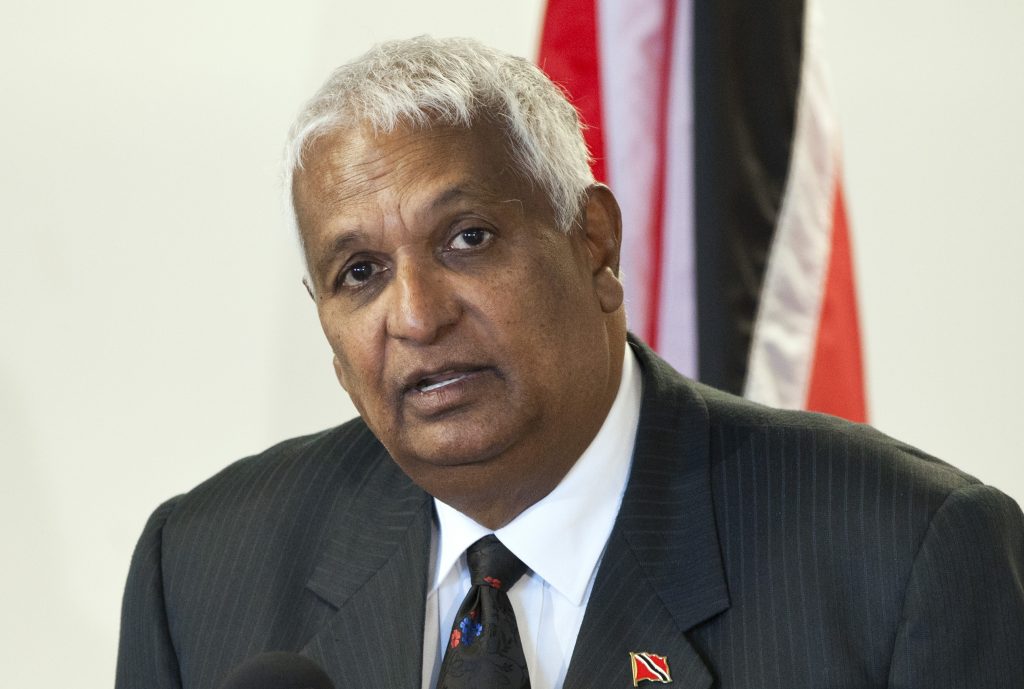India-TT relations are in a flux, rooted strongly in history and culture, says Winston Dookeran former Minister of Foreign Affairs and now Professor of Practice, International Relations Dept. at the University of the West Indies.
Dookeran underlined this issue at a lecture entitled, “Memories of India” at the Mahatma Gandhi Institute for Cultural Co-operation last Friday. The lecture was held under the patronage of the Director of the Institute, Ms. Ramya Ajay. Dr Radica Mahase served as moderator.
“As we ponder the future, India-Trinidad and Tobago relations are in flux, rooted strongly in history and culture, but missing the pieces to strengthen development co-operation and little appetite for common global pursuits,” he said.
Dookeran continued: “At the time of our own independence in 1960s. India was viewed as a champion for developing countries, which included the small nations of the world. With the ascendancy of India as a leading emerging nation in world affairs, its interest and perspectives changed. I noted this in my own work at the United Nations, where India’s focus shifted to an alignment, not with the small developing countries, but rather to the big power countries in the global political order. Locally, India’s foreign policy perspective shifted from culture, commerce and connectivity to issues of technology, power relations and flexible global alignments”.
Speaking on the issue between both countries, Dookeran recalled that with such admiration the High Commissioners of India to this country notably Virender Gupta, Malay, Malay Mishra, Bishwadip Dey, Arun Kumar Sahu-each of them brought an unique character and purpose. “I also remember Hari Shanker Adesh who came to the High Commission as Director of Culture in the 1960’s and remained in Trinidad and Tobago after his term office ended. He built a formidable institution in Trinidad and Tobago, Canada and USA for the promotion of dance, music, philosophy and Vedic Thought as he influenced thousands of young minds, and his teachings left an everlasting legacy to the cultural life and integrity of our people.”
Dookeran recalled in his address marking the 150th anniversary of Tagore at the Divali Nagar in Chaguanas, he referred, “the values of inclusiveness, the values of pluralism were foundation blocks upon which they—Tagore, Gandhi and Nehru, all agreed for India’s struggle which turned out to be the beginning of the decolonization period in the world.”
“I would invite Indian-born Amaryta Sen to give a distinguish Dr Eric Williams Memorial Lecture while I was Governor of the Central Bank, which he titled, “identity and justice”. Sen asked the question what does a just society look like, and he explores the principles of justice in plural societies and multiple identities. Later on, I will use those principles to build a platform of good governance in my offerings of the Congress of the People in the general elections of 2007 in Trinidad and Tobago”, he noted.
Dookeran, in an article, “What Gandhi Means To Me” he termed him an exceptional leader, perhaps the finest political strategist of our century, Gandhi reminded us of the strength and power of the Samman Award moral philosophy as the anchor for building authentic political movements. Along with Tagore and Nehru, he showed how philosophy, strategy and the practice of politics in mapping the pathway for political struggles.
Recounting his several visits to India, Dookeran pointed out, “My first visit was organized by His Excellency De Souza to this country, for which I am forever grateful. I had no inclination or expectations, and it was after that visit that my expectations were ignited. I would make a few trips after to reaffirm the Government of Trinidad and Tobago’s government official desire to establish this Mahatma Gandhi Institute for Cultural Relations, to hold talks with the Minister of Finance, and I gave lectures at the Jawaharlal Nehru University and the Delhi Business community. I also visited the headquarters Brahma Kumari’s University and had an audience Dadi Janki, a world-renowned spiritual leader. My most momentous visit was conferred with the Pravasi Bharaitya Samman award from the President of the Republic of India on a personal merit for distinguish public service in my country of birth”
